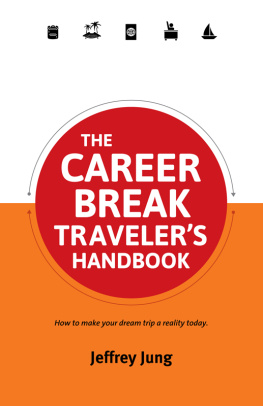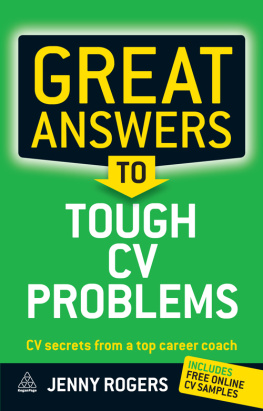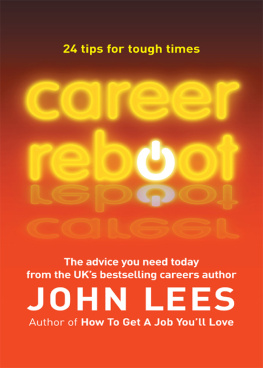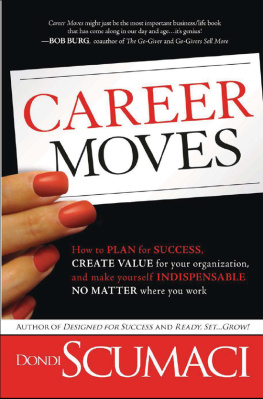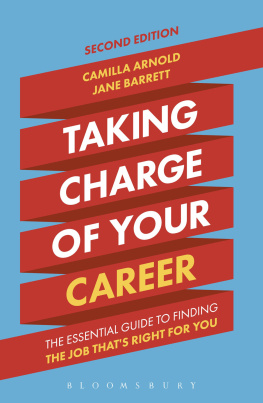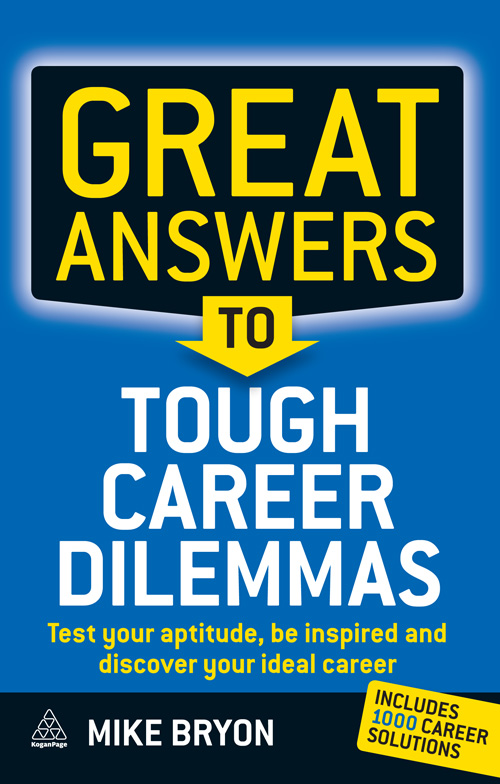Note on the Ebook Edition For an optimal reading experience, please view large
tables and figures in landscape mode. |
This ebook published in 2011 by
Kogan Page Limited
120 Pentonville Road
London N1 9JN
UK
www.koganpage.com
Mike Bryon, 2011
E-ISBN 978 0 7494 5926 0
CONTENTS
Countless people have found a career they love. You could too if you settle on what career you want. If you are one of the many who find it impossible to decide, if you ask yourself over and over what shall I do? then this book is for you. Find the answer by completing the questionnaire in . Score it and find out your motivations, interests and personality traits. Browse hundreds of careers ideally suited to your personality and interests. In all you will find 1,000 career ideas, along with inspirational case studies and an account of the countless opportunities available in todays exciting new world of work. Finally make your dream a reality by following the clearly explained steps.
First, obtain from .

When you have discovered the career of your dreams, check out Great Answers to Tough CV Problems and Great Answers to Tough Interview Questions (also published by Kogan Page) for CV and interview help and advice.

These days it is rare to spend 40 years working for the same organization. It is also increasingly unusual for people to stay in the same discipline. It is likely that you will have three or even four careers in your working life. And, for a great many reasons, your first career is unlikely to be the one in which you find most happiness. What people once enjoyed doing may no longer please them. Workers today are more courageous, and because there are now far more opportunities people are less inclined to remain unhappy in work. Instead, they will choose to embrace change and embark on a programme of retraining and a new career.
The world of work has changed
You owe it to yourself to take a new look. Change brings challenges but it also brings opportunities. In the last 10 years the world of work has changed beyond recognition and mostly for the better. In fact, the world of work is in a constant state of change. Some traditional occupations have faded away. It was not long ago, for example, that people trained and worked as typists, telephonists, assemblers, machine minders and setters. These occupations and many others have all but vanished with the advent of computers or they have been exported. A great deal of manufacturing has moved from Europe and the United States to China, and the jobs with it. Many service industry jobs in the English-speaking world are moving to locations such as India. Some careers, such as bank managers, publicans, travel agents and milk-round operative, are in seemingly terminal decline. Other careers flourish today that only a few years ago did not exist: energy conservation workers, police community support officers, teaching assistants, recycling operatives, web page designers, technicians for home entertainment systems and carbon credit consultants, for example. Careers too change, some so dramatically that they hardly resemble what they once were. A nurse who specializes in care for people with mental health problems will now provide care in the community rather than on a hospital ward. A firefighter will work as much on initiatives to prevent fires as on putting them out, and an ambulance driver is now a highly skilled paramedic. Some occupations have seen the full circle of decline and then resurgence. Tattoo artists, internal auditors and educational administrators are examples of careers that for a host of reasons are currently enjoying a revival after a period of decline. Below are reviewed seven of the newest developments and some of the careers opportunities that they have given rise to.
Hot topics in the changing world of work
The emergent class of the super-rich
Twenty-five years ago there were fewer than 20 billionaires in the United States. Today there are more than a thousand, not to mention the hundreds of thousands of multi-millionaires. This is a phenomenon repeated around the world. More people are making fortunes and they are making them faster than ever before. The wealth of the super-rich has come from advances in technology and the quantum growth in global trade. To join the club of the super-rich, consider the following hot favourite routes. Vast sums have been made by:
Fund managers . This role involves the management of shares, bonds, investments and assets. The fund manager directs how the fund is invested and the amount of risk taken to serve the fund owners objectives.
Private equity partners . A private equity partner is a firm or individual that invests in companies to fund management buy-outs, buy-ins, acquisitions and expansion in return for a stake in that company.
Entrepreneurs . Ben & Jerry and Bill Gates are famous entrepreneurs. Ice cream and operating systems have nothing in common, but an entrepreneur has an idea and starts an enterprise to fulfil it and assumes responsibility for the risks and the gains. For inspiration see, for example, www.entrepreneur.com.
Electronic engineers design and test consumer electronics, and electronic equipment for every area of industry, including the financial industry, aviation and telecommunications. Design the next thing after the iPod and who knows how wealthy you might become.
Applied mathematicians who bring their training to the worlds of insurance and finance can earn big salaries as, for example, actuaries or business analysts, and they might just spot a gap in the market or develop the system to beat the casino that makes them a fortune.
Bio-engineers are searching for the clean fuel to replace our dependence on petroleum products. The researchers and engineers who hold the rights to this technology are going to be very rich indeed. How good would it be if you could save the world from carbon pollution and make yourself a personal fortune?
Computer engineers have in some cases already made fortunes, and the opportunity to join those who have made them remains.
Physicists who move into software development or systems engineering are sought after. They are able to bring their training to problems and just might suggest a novel solution that revolutionizes a process. In any event they are soon earning a six-figure dollar salary.
Chemists might discover a new substance, or with a Chemical Engineer develop the next big product. The chemical industry is huge and includes pharmaceuticals, cosmetics, fabrics and building materials. Even if they dont make the breakthrough to the next big thing, by the time they reach senior positions they can earn in excess of $100,000 per annum. It wont make you super-rich but its a good salary by any standard.
If you cant join them consider working for them
The super-rich enjoy a luxurious lifestyle that the vast majority of us cant begin to imagine. But they have a problem that a lot of us would love to share. Their fortunes are growing at such a rate that they just cant spend it fast enough. So they employ armies to spend it for them. Their agents buy estates of land, fine and decorative art, private jets and super-yachts. The super-rich obviously live in opulent homes, but not just one; they all own many and each requires interior designers, domestic staff, drivers, gardeners and a maintenance manager. They employ gamekeepers, machinery operatives to manicure their estates, pilots, ground staff and hostesses for their private jets, and a captain, first mate, deckhands, cooks and engineers for their super-yacht. Their professional advisors manage the staff, keep count of the fortune and catalogue the ever-growing list of possessions. They employ nannies for their children, take their families personal security and privacy seriously and employ teams of the best people to oversee it all.




